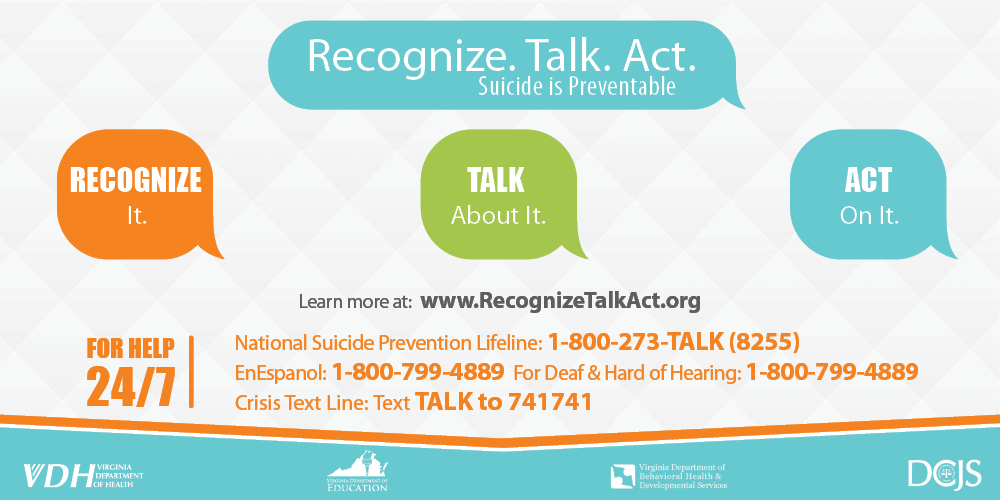We are a training, technical assistance, and policy development program, and are not a crisis intervention service based program.
Everyone experiences some form of physical or emotional pain in their lives. This pain can easily go unnoticed by our friends, colleagues, family, and community as our daily lives, the obligations we have, and the commitments we make take up a lot of space. Those who are experiencing pain or are feeling overwhelmed may find it difficult to ask for help.
It is the responsibility of every community member to work towards supporting our neighbors, friends, family, and colleagues. By doing so, we can normalize conversations around mental health, reduce harmful stigma surrounding suicide and suicide loss, and create environments that value all.
Although every situation is different, there are times when our friends, colleagues, students, and neighbors (to name a few) may show signs prior to attempting to take their life. You can learn to recognize when those around you may be in need of help. Some signs include:
-
-
- Talking about wanting to die or to kill themselves
- Looking for a way to kill themselves, like searching online or buying a gun
- Talking about feeling hopeless or having no reason to live
- Talking about feeling trapped or in unbearable pain
- Talking about being a burden to others
- Increasing the use of alcohol or drugs
- Acting anxious or agitated; behaving recklessly
- Sleeping too little or too much
- Withdrawing or isolating themselves
- Showing rage or talking about seeking revenge
- Extreme mood swings
-
Recognize. Talk. Act. is a campaign aimed at preventing suicide in Virginia. Below are resources and links for schools and the community to help spread the word. Everyone has a role to play. Recognize. Talk. Act.
Electronic Toolkit for Schools
- Suicide Prevention Tips and Resources For Schools
- Suicide Prevention Year-Round
- Social Media Guidelines and Resources
- Recognize Talk Act Social Media Graphics
- Recognize Talk Act Printable Posters
- Information about Lethal Means Restriction
- Lock and Talk Virginia Communities
- Lock and Talk Pledge (PNG)
- Lock and Talk Poster 1
- Lock and Talk Poster 2

